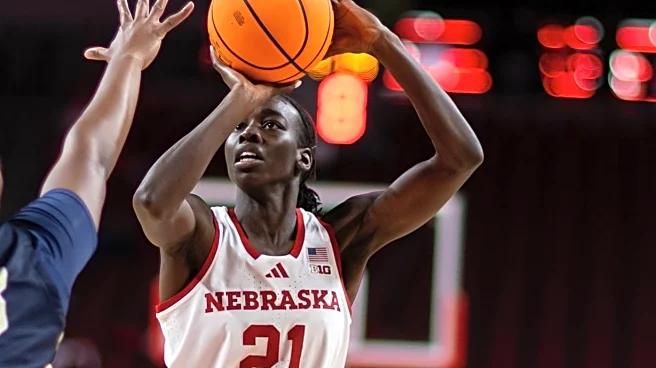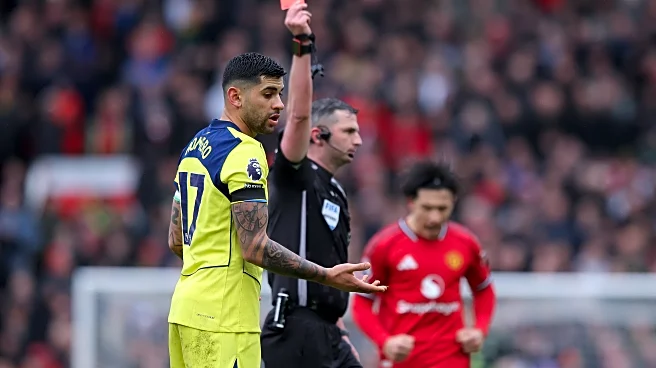What's Happening?
HarperCollins experienced a decline in first-quarter earnings, with profits dropping from $81 million to $58 million, largely due to a $13 million write-off following the collapse of wholesaler Baker &
Taylor. The company's revenue fell by 2%, impacted by lower sales of digital audiobooks and e-books. Despite these challenges, HarperCollins saw strong sales from titles like 'Katabasis' by R.F. Kuang and 'An Inside Job' by Daniel Silva. CEO Robert Thomson expressed optimism for the upcoming period, noting a rebound in book orders and increased interest in religious titles following recent events.
Why It's Important?
The financial impact of Baker & Taylor's closure on HarperCollins highlights the vulnerabilities in the publishing supply chain and the importance of strategic partnerships. The decline in digital sales suggests shifts in consumer preferences and the competitive landscape, particularly with the entry of platforms like Spotify into the audiobook market. HarperCollins' focus on religious titles reflects broader societal trends and the potential for niche markets to drive growth in challenging times.
What's Next?
HarperCollins plans to capitalize on the recent rebound in book orders and the success of new releases. The company may explore further partnerships and strategies to strengthen its position in the digital market. As the publishing industry navigates these changes, stakeholders will likely focus on adapting to evolving consumer behaviors and technological advancements.
Beyond the Headlines
The situation at HarperCollins underscores the broader challenges facing the publishing industry, including the need for innovation and resilience in the face of market disruptions. The role of AI and intellectual property in publishing is an ongoing conversation, with implications for how content is created, distributed, and monetized.











